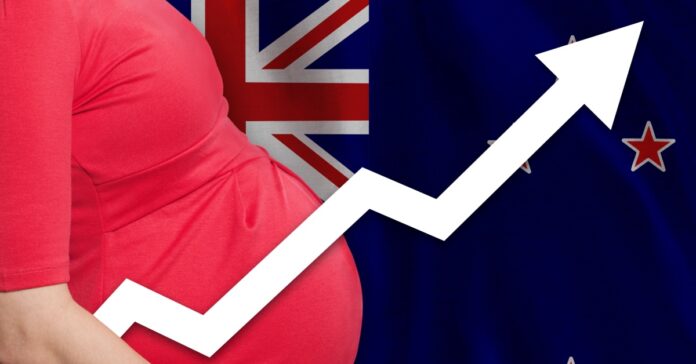
Since the complete decriminalization of abortion in 2020, the number of abortions in New Zealand has surged from 12,948 in 2019 to 16,214 in 2023, marking a staggering 25 percent increase, according to data obtained from the New Zealand Ministry of Health by the Right to Life advocacy group.
Furthermore, a report from Abortion Services Aotearoa NZ revealed that in 2022 alone, 221 women experienced complications following abortions, including issues like hemorrhaging, retained products, infections, and unsuccessful procedures. This marks a troubling 40 percent rise from the previous year, indicating a concerning trend in the aftermath of the law change.
Of particular concern are abortions performed after the 20-week mark, where a whopping 60 percent of complications arose, with medical abortions accounting for the majority. Shockingly, in 57 cases of medical abortions, authorities couldn’t even locate the patients for follow-up care, raising serious questions about post-abortion medical oversight.
In 2020, New Zealand made a pivotal legislative shift, removing abortion from the Crimes Act, a law that had stood since 1977. The new legislation effectively decriminalized abortion, allowing women to seek termination up to 20 weeks into pregnancy without the previous requirement of approval from two doctors.
This move was hailed by its proponents as a step towards women’s autonomy and healthcare accessibility. However, it also raised significant concerns among critics who argue that the law fails to address the rights of the unborn adequately and undermines the value of human life.
Despite opposition from some quarters, including the New Zealand First party, the law change was pushed through under the leadership of Prime Minister Jacinda Ardern’s Labour government. The vote, termed a “conscience issue,” saw 68 MPs in favor and 51 against, reflecting a deeply divided public and parliamentary opinion.
Conservative groups like Family First have decried the rise in abortion numbers as “grim and upsetting,” lamenting the societal shift away from valuing the sanctity of life. They argue that the current law disregards the humanity of the unborn child and sets a dangerous precedent for future legislation on healthcare and human rights.
Interestingly, the political landscape regarding abortion in New Zealand seems unlikely to revert to a more conservative stance despite shifts in government. Even with the change in leadership, Prime Minister Christopher Luxon of the National Party has reaffirmed his commitment to maintaining the status quo on abortion access, signaling a reluctance to revisit the issue.
Polling data suggests that a significant majority of New Zealanders support abortion rights, with 77 percent either in favor of unrestricted access or under certain circumstances like rape. This places New Zealand among the most liberal countries globally on this issue, reflecting a broader societal acceptance of reproductive choice and women’s rights.
While the decriminalization of abortion in New Zealand has expanded access to reproductive healthcare, it has also sparked contentious debates about the ethical implications and societal consequences of such a policy shift. As the country grapples with these challenges, it remains to be seen how future legislative and social developments will shape the reproductive rights landscape in New Zealand.







